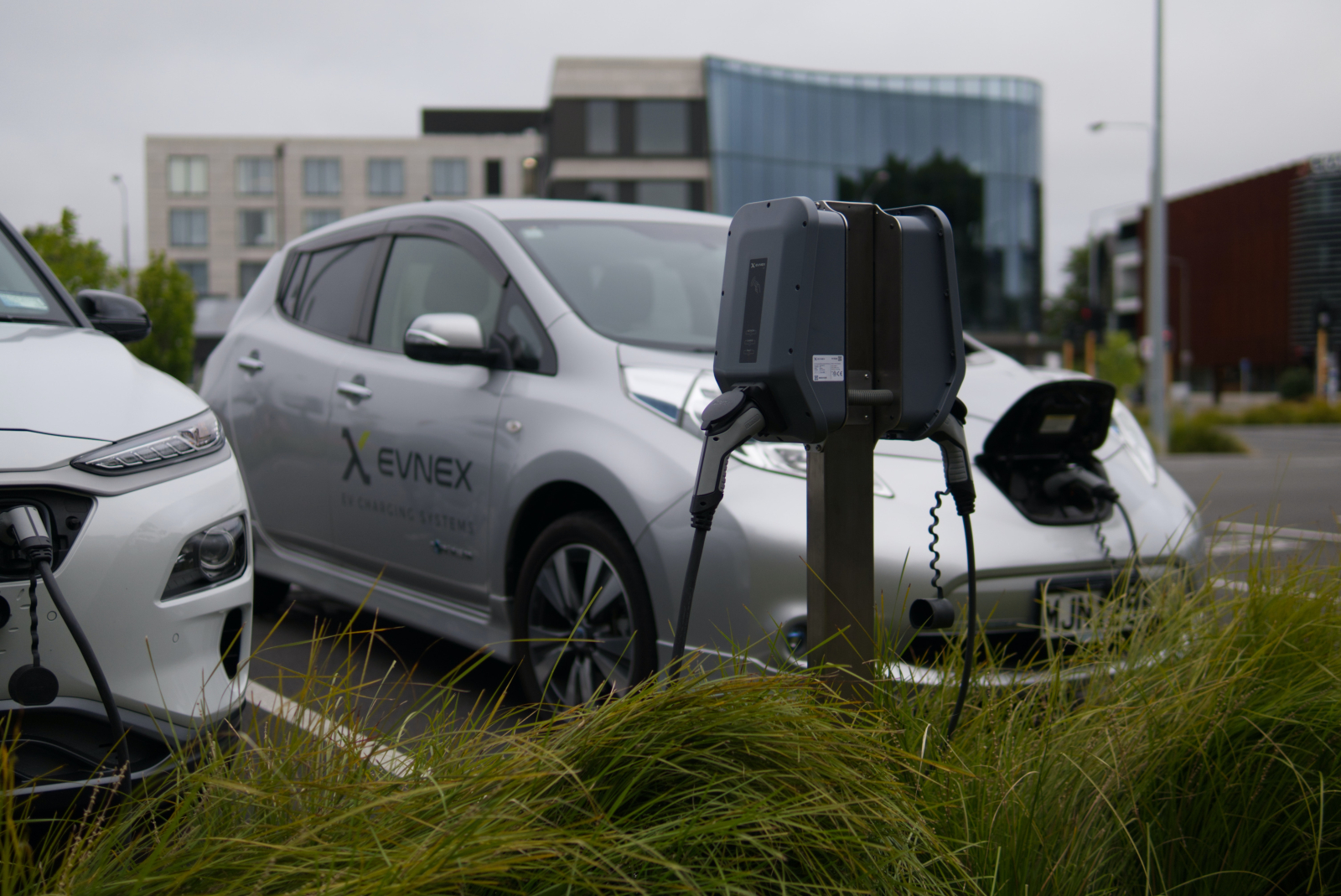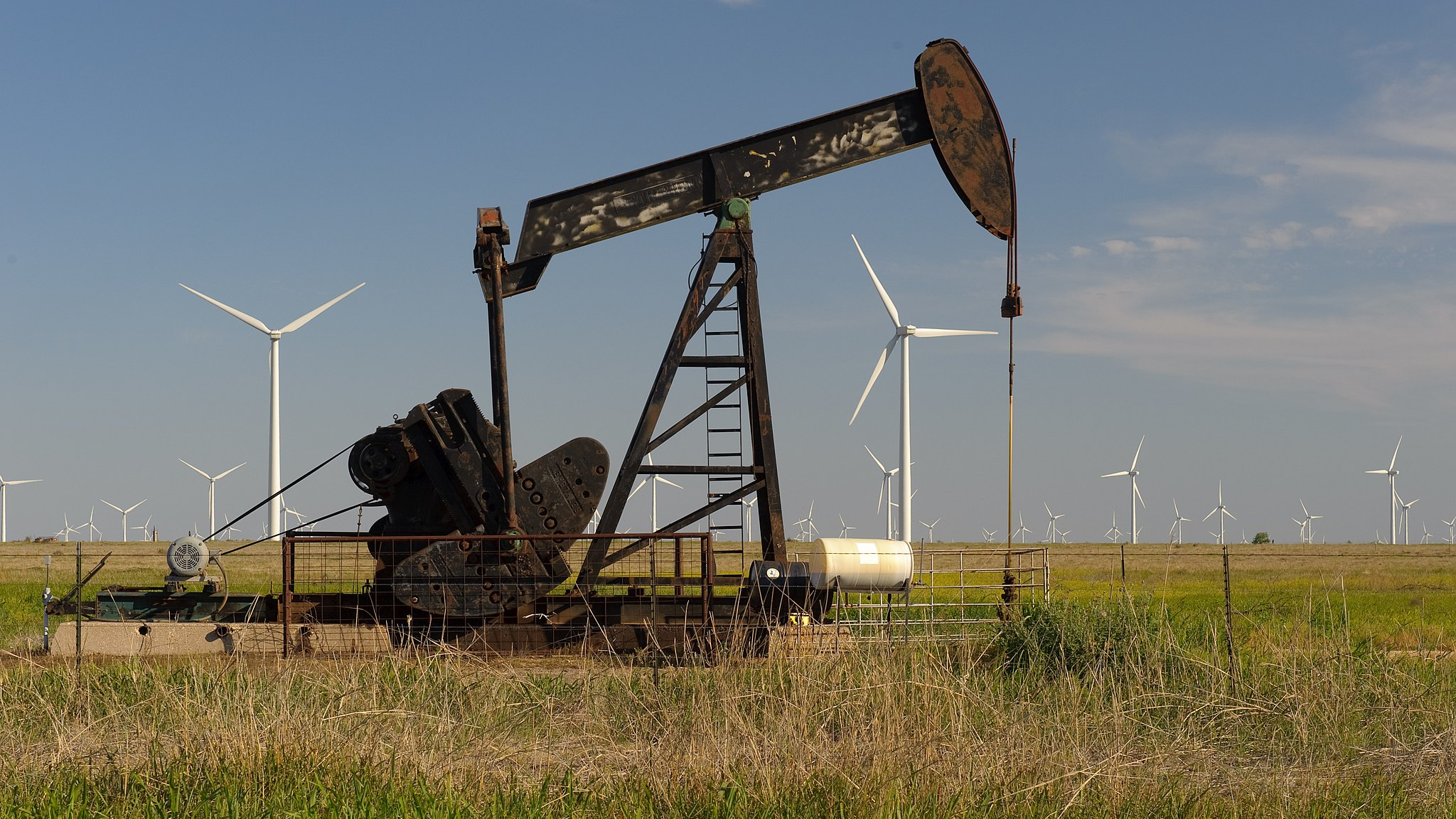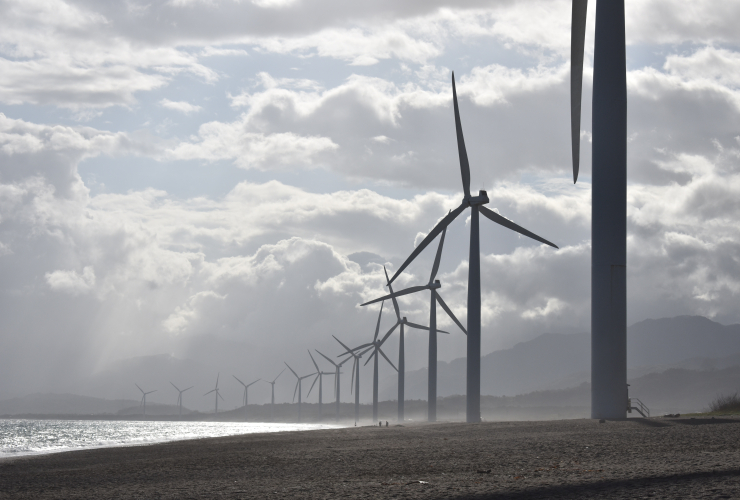The Alberta government is rebuffing an influential International Energy Agency plan to reach net-zero carbon pollution as an “unreasonable” and “unfeasible” proposal “driven by activists.”
Alberta Energy Minister Sonya Savage made the comments in a statement sent to Canada’s National Observer in response to the release of the IEA’s “Net Zero by 2050” report, which lays out a roadmap for reaching net-zero emissions. It concluded there was “no need for investment in new fossil fuel supply.”
Last year, Savage cited the IEA’s forecasts in an op-ed as “proof” that the world’s energy markets will continue to demand oil “decades” into the future. “Under every single scenario and forecast out there, oil will continue to be used and dominate the energy mix,” she told media on another occasion.
But on Tuesday, the IEA painted a picture of an energy future where Canada’s proven reserves of crude oil — the third-largest in the world after Saudi Arabia and Venezuela, and located almost entirely in the Alberta oilsands — will be increasingly difficult to get to market.
The Paris-based agency sees coal demand being almost wiped out, oil demand cratering by 75 per cent and demand for natural gas cut in half by 2050. “No exploration for new resources is required and ... no new oilfields are necessary,” the IEA wrote.
Savage noted that the new report was out of step with previous agency forecasts that looked more favourably at fossil fuel demand. The minister then suggested this was because the IEA, a body made up of 30 member countries that works to secure the global oil supply, was now being influenced by climate action advocacy.
“Unlike the energy outlook reports that the IEA regularly issues, this is a policy proposal driven by activists, something that the IEA freely admits,” she said.
“There are also major sections of this report that are unreasonable or unfeasible in the real world. The suggestion that global oil and gas production should shift away from socially and environmentally responsible jurisdictions like Alberta and instead substantially increase the market share of OPEC (the Organization of the Petroleum Exporting Countries) is not in the interest of our country, the environment or global energy security.”
Savage did not expand on the definition of “activists.” The agency said the report originated from discussions with the United Kingdom’s government as part of its presidency of the UN climate summit, COP26, in November. Specifically, the IEA had convened a net-zero summit with COP26’s president, former U.K. business secretary Alok Sharma.
In the agency’s net-zero scenario, the price of oil is projected to drop to US$35 per barrel in 2030 and US$25 in 2050, which would make it far more difficult for oilsands operations to stay profitable given that the industry needs to take extra steps to refine Western Canada’s heavy, sulphur-rich crude oil into usable products compared to some other jurisdictions.
“This report is a game changer,” said Dale Marshall of Environmental Defence. “It’s really at odds with basically every government in Canada that in some way benefits from oil and gas development.”
The IEA’s findings could potentially change how Canada approaches critical climate decisions, says Catherine Abreu, executive director of Climate Action Network-Canada.
These projections directly inform modelling used by the Canadian government to make climate decisions, said Abreu, which is why it’s important for future modelling to reflect a path to a climate-safe future.
“If the government of Canada is receiving information from Canada Energy Regulator (CER) saying our oil and gas production is going to continue to grow and we are going to get much more money for our oil and gas on international markets than is realistic … that limits the level of ambition that the Canadian government can then bring to our climate plans,” said Abreu.
The CER projected in November 2020 that Canadian crude oil production will peak in 2039 and natural gas production will peak in 2040.
Darren Christie, chief economist for the CER, said the regulator is working on finalizing the scenarios that will be used to project Canadian energy production for its 2021 Energy Futures report.
“The IEA report is certainly one of the ones that we'll look at as we develop our assumptions heading into the 2021 edition of our long-term projections,” he said in an interview. He noted that this does not mean they will “just take the assumptions that we have in this particular IEA report and transpose them into our 2021 assessment.”
Abreu and Marshall hope the net-zero report will lead the CER to do its own 1.5 C compatible modelling.
Canada also has work to do in the transportation sector.
The IEA report says ending the sale of new internal combustion engine passenger cars by 2035 is key to achieving net zero, but Canada’s target is to reach 100 per cent of new light-duty electric vehicle sales five years later, in 2040.

Transport Canada spokesperson Sau Sau Liu said the department was assessing whether its “level of ambition” on zero-emission vehicles (ZEVs) “continues to remain consistent with the urgency of confronting climate change” given the integrated nature of the North American auto market.
In a recent meeting with U.S. climate envoy John Kerry, Environment Minister Jonathan Wilkinson said the federal government is working with the United States to implement a 100 per cent ZEV sales target as soon as possible.
“We are continually assessing progress to targets to determine if additional measures are needed to meet them,” said Liu.
The transportation sector is Canada’s second-largest emitter, and emissions from this sector continue to increase because of reliance on SUVs and trucks.
“A five-year lag is a big deal,” said Marshall. “We haven't seized the opportunities around efficiency and electric vehicles despite the fact that those electric vehicles are now, on a lifecycle basis, cheaper to own than the internal combustion equivalent.”
As a rich, industrialized country, Marshall says Canada should be working to phase out internal combustion engines sooner than 2035.
He says how the government responds to the report’s findings — particularly the assertion that there can be no new investment in fossil fuel production — will be very telling.
“This really does starkly reveal how out of touch our Canadian governments are, and if governments and companies continue to push for expanding oil and gas … what they are saying is, ‘We are doing this despite the fact that we know that this means climate chaos,’” he said.
If governments ignore the call to stop investing in fossil fuel projects and are slow to embrace the potential of clean energy technologies, Marshall said workers will suffer.
“The transition will be something that is imposed upon them in a way that is maybe quicker, more painful and more disruptive than it could be otherwise if we had a gradual transition, one that is supported and that's fair for workers and communities,” he said.
Natasha Bulowski / Local Journalism Initiative / Canada’s National Observer
Poor Alberta! All those
Poor Alberta! All those "activists" coming at them from all sides. Why can't they just go away and let Kenney+Co take care of things! Yeesh. (sarcasm alert)
"[Alberta Energy Minister
"[Alberta Energy Minister Sonya] Savage noted that the new report was out of step with previous agency forecasts that looked more favourably at fossil fuel demand."
Politicians and industry leaders citing IEA "predictions" and "forecasts" misrepresent IEA reports. The IEA offers several possible scenarios — projections, not predictions. No scenario is inevitable. Which one we follow is up to us.
Typically, fossil fuel boosters refer only to the first (or base) Stated Policies scenario and fail to mention the others. The Stated Policies leads to climate disaster. Another fact the oil lobby fails to mention.
*
The IEA does not make predictions about the future.
The most recent IEA report (Oct 2020) sets out four possible scenarios based on different policy directions and emissions trajectories. Which path we choose is up to us.
1) The Stated Policies Scenario
2) The Delayed Recovery Scenario
3) The Sustainable Development Scenario
4) The Net Zero Emissions by 2050 case.
https://www.iea.org/reports/world-energy-outlook-2020
Projections based on scenarios are not predictions. And neither constitutes fact.
Climate policies and our future emissions trajectory are up to us.
"There is no single story
"There is no single story about the future of global energy and no long-term IEA forecast for the energy sector. The WEO uses a scenario-based approach to highlight the key choices, consequences and contingencies that lie ahead, and to illustrate how the course of the energy system might be affected by changing some of the key variables, chief among them the energy policies adopted by governments around the world." (IEA World Energy Outlook 2020)
https://www.iea.org/topics/world-energy-outlook
*
"Commentary: Understanding the World Energy Outlook scenarios"
https://www.iea.org/newsroom/news/2019/october/understanding-the-world-e...
"Today’s energy choices will shape the future of energy, but how should we assess their impact and adequacy? This is the task the World Energy Outlook takes on. It aims to inform the thinking of decision makers as they design new policies or consider new investments. It does so by EXPLORING POSSIBLE FUTURES, the ways they come about and some of the main uncertainties – and it LAYS OUT THE CONSEQUENCES OF DIFFERENT CHOICES FOR OUR ENERGY USE, energy security and environment.
"One key element of this is to ASSESS WHERE THE GLOBAL ENERGY SYSTEM IS HEADING, BASED ON THE POLICY PLANS AND INVESTMENT CHOICES WE SEE TODAY. A second is to assess WHAT WOULD NEED TO BE DONE DIFFERENTLY IN ORDER TO REACH THE CLIMATE, ENERGY ACCESS, POLLUTION AND OTHER GOALS that policy makers have set themselves.
*
""The World Energy Outlook does not offer a forecast of what the energy system will look like but instead presents various projections to 2040 based on different policy assumptions, in order to give policy makers the tools to decide what path to follow. The main case is called the New Policies Scenario, and it models current and announced energy policies, including those in the Paris Agreement. This year, the report introduces the Sustainable Development Scenario, which offers an integrated way to achieve a range of goals: climate stabilization, cleaner air and universal access to modern energy." (2017)
• www.iea.org/newsroom/news/2017/november/a-world-in-transformation-world-...
To think that not long ago
To think that not long ago the IEA routinely underestimated the investment in and development of renewables. My how times have changed.
Of course all this has been
Of course all this has been the fruit of "activists"!! It's really too bad that that's what it has taken for anything to change!! But it's also an indicator of how single-policied and ignorant the Alberta government is!!
Sonya Savage, Jason Kenney
Sonya Savage, Jason Kenney and other luminaries within the scientifically illiterate UCP need to look at the definition of "activist."
Google:
noun: activist; plural: activists; a person who campaigns to bring about political or social change
adjective: activist; campaigning to bring about political or social change
Merriam Webster:
one who advocates or practices activism; a person who uses or supports strong actions (such as public protests) in support of or opposition to one side of a controversial issue
Cambridge English Dictionary:
a person who believes strongly in political or social change and takes part in activities such as public protests to try to make this happen
Dictionary.com:
an especially active, vigorous advocate of a cause, especially a political cause
advocating or opposing a cause or issue vigorously, especially a political cause
Collins:
an activist is a person who works to bring about political or social changes by campaigning in public or working for an organization
Et cetera.
Presumably the majority of MLAs on the Alberta government side of the legislature think these definitions do not include the activists on the radical right protesting the science of climate change and any organization that chooses to act on the science, like the IEA recently.
And of course there are no activists among the small-minded Yellow Jackets driving a convoy of drilling trucks to Ottawa, or in the Canadian Association of Petroleum Producers PR department, or in the Kenney War Room, which also happens to juice its lack of credibility even more by paying handsomely for the regurgitation of conspiracy theories with public money.
Alberta will never come to terms with the fact that the world is passing it by as long as it is ruled by conservative activists whose credibility was popped long ago.
Further, Alberta energy
Further, Alberta energy minister Savage’s comments trying to minimize the import of the IEA report by denigrating the professional analysts, scientists and writers is just petty and childish.
Should she cafe to open the first few pages of the IEA report before she opens her mouth again, she will discover:
- 39 main authors and 23 major contributors
- 16 International Monetary Fund and International Institute for Applied Systems Analysis staff and two independent consultants who partnered with the IEA to produce macroeconomic analysis and modelling
- 25 additional IEA colleagues who provided extensive review, input and detailed commentary
- countless IEA editors, publishers and other staff who directed the report through to publication
- and no less than 83 independent professionals who peer-reviewed the report
That’s quite a collection of hippie ecofacist activists, Sonya.
I guess you have noticed
I guess you have noticed recently that Mr. Trudeau has also "popped" whatever popped means?
.....“driven by activists.”
.....“driven by activists.” It is a terribly difficult job but someone has to do it and no government is. Unfortunately for the Conservative Party this is one of the main reasons they cannot win a majority in the coming Federal Election. The party is centered in Alberta after all.






Comments